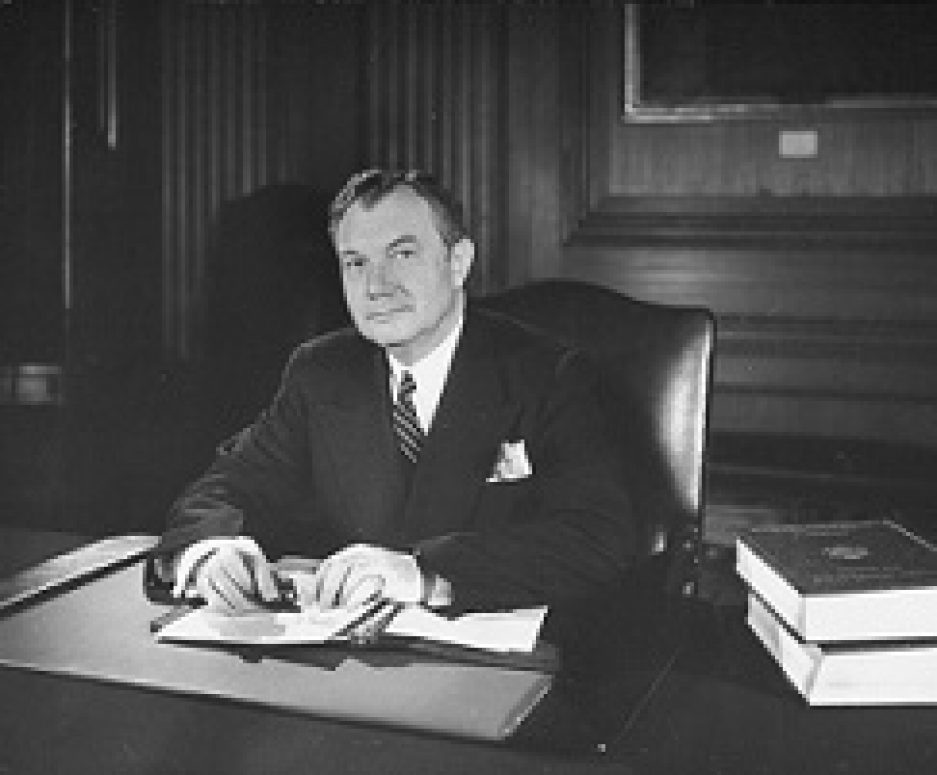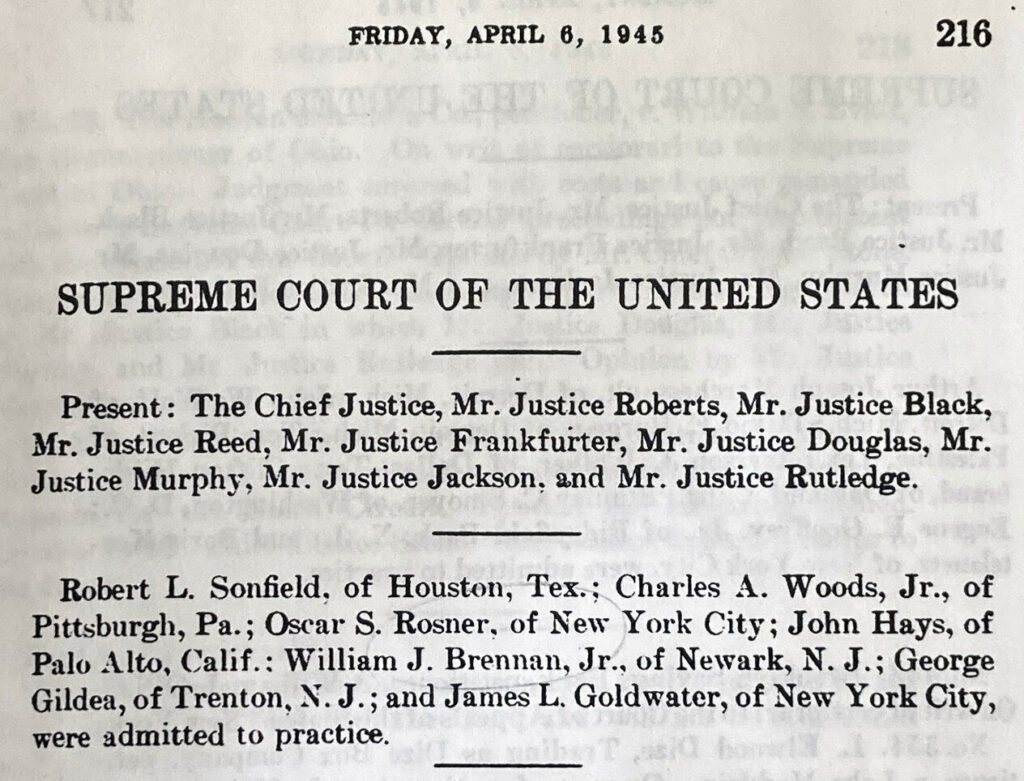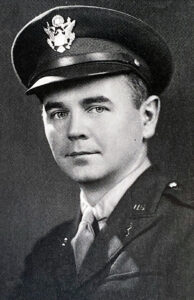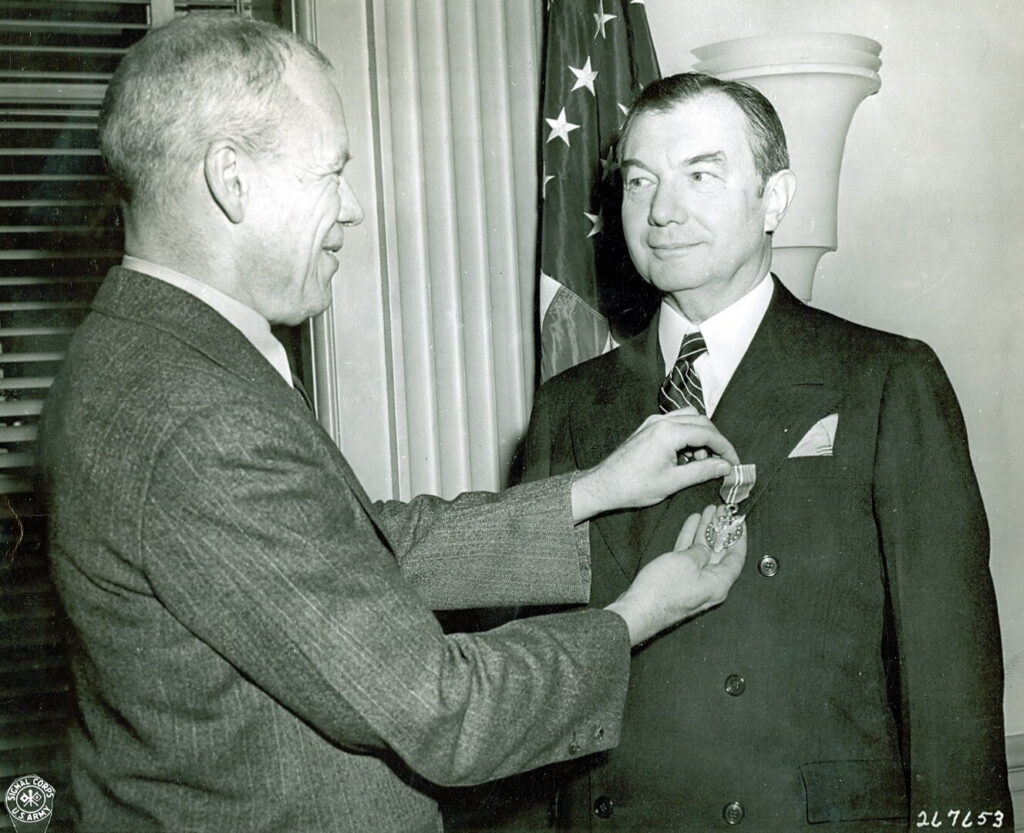The Justices of the Supreme Court of the United States took the bench at noon on Friday, April 6, 1945.
On Monday through Thursday of that week, the Justices had heard oral arguments in nine cases. On that Friday, they heard arguments in three more.
But as the first order of business on that Friday, they admitted seven attorneys, all men, to practice before the Court. They came from various States—one from California, two from New Jersey, two from New York, one from Pennsylvania, and one from Texas.
One of the New Jersey lawyers actually came to the Supreme Court that day from just across town. U.S. Army Colonel William J. Brennan, Jr., of Newark, age thirty-eight, was serving then in the War Department as Chief of the Labor Branch of the Industrial Personnel Division. It was a senior position, ensuring that production of vital war material was not impaired by work stoppages or personnel shortages.
Colonel Brennan appeared briefly, and I assume in military uniform, before the Supreme Court that afternoon.
He could not have imagined that he would be appointed to the Court less than twelve years later.
Justice Robert H. Jackson, who sat that afternoon on the Supreme Court bench, had been frustrated during the 1942-1945 World War II years to be serving on the Court. He thought that it was “sort of a back eddy” and that he was not doing much that was useful in the war effort.
Jackson could not have imagined that just twenty days later, President Harry S. Truman would recruit him to serve as
the representative of the United States and … its Chief of Counsel in preparing and prosecuting charges of atrocities and war crimes against such of the leaders of the European Axis Powers and their principal agents and accessories as the United States may agree with any of the United Nations to bring to trial before an international military tribunal.
Colonel Brennan was released from active duty in September 1945.
Undersecretary of War Robert P. Patterson later awarded him the Legion of Merit, a U.S. Armed Forces military award for exceptionally meritorious conduct in the performance of outstanding services and achievements.
Justice Jackson returned to the Supreme Court bench in October 1946, after a year away prosecuting Nazi war criminals in Nuremberg.
The next year, Robert Patterson, by then the Secretary of War, pinned on Jackson the Medal for Merit. It was the highest World War II-era decoration that the president could award to civilians who “distinguished themselves by exceptionally meritorious conduct in the performance of outstanding services” in the war effort.
Justice Jackson died in 1954.
Justice Brennan was appointed to the Supreme Court in 1956.
They never were Court colleagues.
They were, in separate, significant ways, colleagues in World War II service.
Thank you to Brennan biographers Seth Stern and Stephen Wermiel and to personnel in the Supreme Court Clerk’s Office for their expert assistance.



